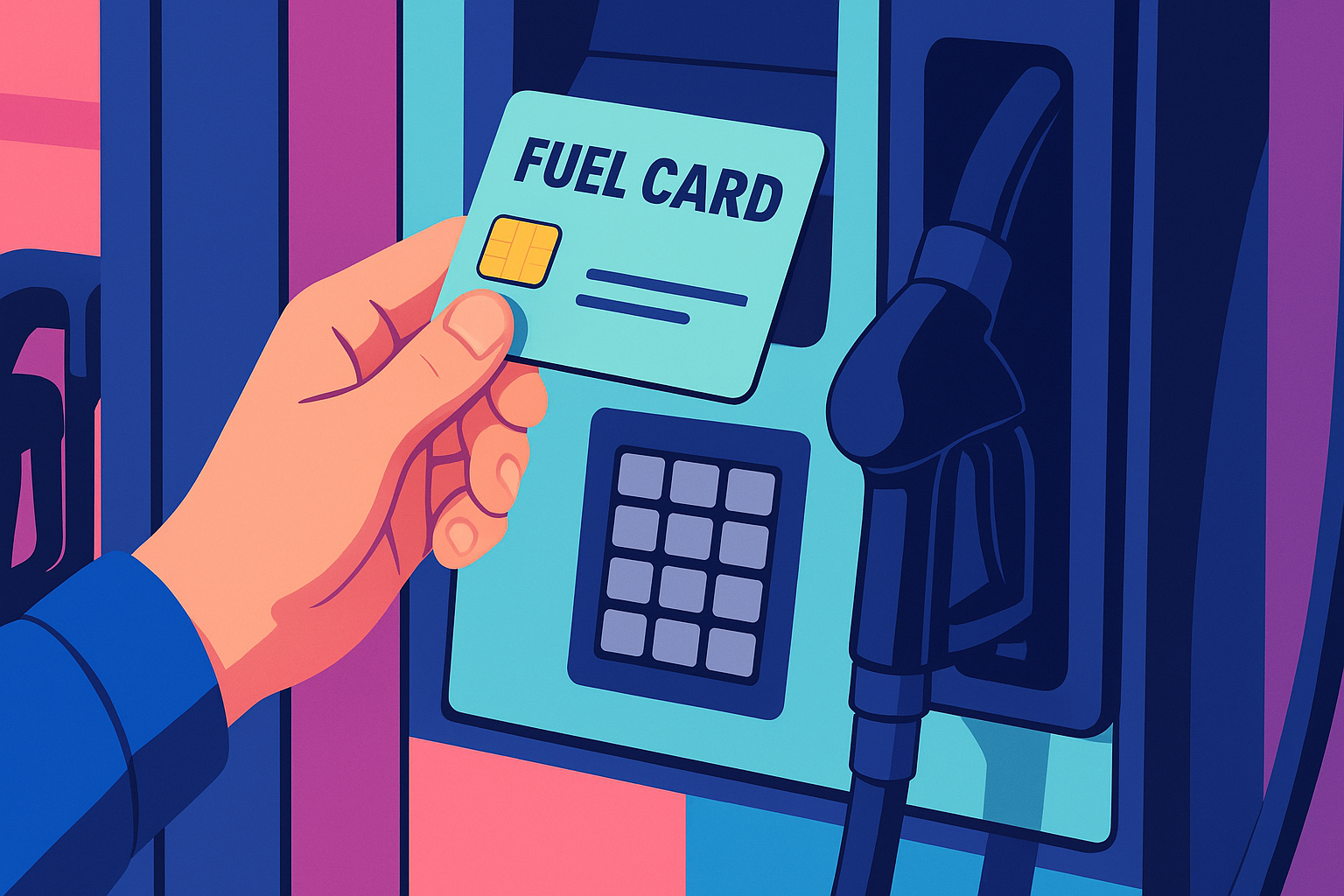Follow us on LinkedIn
Our PageIntroduction
What is a fleet technician? Is the role similar to a diesel mechanic, or do fleet technicians have their own work procedures and responsibilities? And with more businesses switching to using personal vehicles for business purposes, what is the employment outlook for fleet technicians in 2024?
Cardata is building a resource library for fleet managers and the technicians they employ. In this article, we’ll explore fleet technicians’ typical duties and responsibilities, what qualifications aspiring fleet managers must possess, and what regulatory and compliance issues arise in fleet management.
Fleet technician job description
A fleet technician is any automotive repair expert responsible for the simultaneous upkeep and maintenance of many vehicles. Like a car or diesel mechanic, fleet technicians vary from the roles above by their duties to oversee an entire fleet of vehicles, usually for a single company (although this can change.) Fleet technicians are naturally found whenever many business vehicles are required, so they often manage specialized vehicles such as taxis, school buses, or delivery trucks.
According to ZipRecruiter, fleet technicians “service vehicles when they are returned to the motor pool, ensure that they meet all safety regulations, and report any issues.”[1] This definition highlights that fleet technicians usually service vehicles after returning to a central location rather than traveling to perform repairs in situ. Because large fleets can log tens of thousands of miles across North America in an average week, fleet technicians must assess and repair mechanical problems before the vehicles are driven off the lot.
Some companies outsource their fleet management needs to third-party companies. A fleet technician may be responsible for a single fleet of vehicles contracted out to multiple end-user businesses. However, in most instances, a fleet technician will work for a firm that owns various company cars — usually at least five or more.
Core duties and responsibilities of a fleet technician
Fleet technicians are responsible for many of the same duties that a regular automotive mechanic would but on a larger scale. The core duties and responsibilities will vary by job and organization size.
On an average workday, a fleet technician could perform any of the following duties:
- Brake repair — brake line flushing, brake pad repair and replacement, caliper inspection, rotor servicing.
- Diagnosing and fixing common mechanical and electrical issues.
- Understanding more complex electronic systems and the use of vehicle diagnostic tools and technologies. Today’s vehicles contain more complex electronic procedures than yesterday’s, and many cannot be assessed from sight alone; these diagnostic tools require some training to operate.
- Coordinating with the fleet manager to fulfill repair orders in the queue and ensuring repair turnaround according to the urgency and severity of the mechanical issue.
- Warranty management – tracking warranty conditions, sending parts to correct manufacturers for repair under warranty, sourcing part repairs with minimum cost to the employer.
- Application of traffic safety laws and regulatory knowledge to ensure vehicles are compliant with state and federal regulation.
- Preventive maintenance and part replacement.
- Transportation of vehicles and parts to and from repair facilities.
- Mileage, odometer, and safety incident log verification.
What a fleet technician must know
The most important thing a fleet technician must know is the mechanical and electrical systems of the vehicles they service. Fleet technicians must understand how these vehicles work and which common issues may arise during their daily use.
Fleet technicians must be jacks and jills of all trades because the average vehicle has many different components and systems, all subject to depreciation and decay. Fleet mechanics must have an excellent working knowledge of the following topics:
- Mechanical engineering. Understanding general mechanical engineering principles and core topics such as dynamics, thermodynamics, mechanical design, and structural analysis.
- Pneumatics and hydraulics. Basic knowledge of physical principles underlying pneumatic and hydraulic systems.
- Electrical engineering. Fleet technicians must understand the basics of circuitry, how to draw and interpret circuit diagrams, and how to measure AC/DC currents or electrical resistance using a voltmeter or other tools.
- Diagnostic technology and its applications. A fleet technician may need to know how to operate several different diagnostic technologies
- Miscellaneous administrative duties. Good knowledge of warranties, keeping track of parts under contract, warranty expiration dates, mileage, and repair incident logs administration.
Fleet technician qualifications and training
For fleet technicians, academic credentials are less necessary than good practical and applied knowledge. However, obtaining specialized knowledge like a diploma or certificate will benefit any mechanic looking to move into a fleet technician role.
A valid driver’s license for the technician’s home state is necessary. Fleet technician candidates should comprehensively know traffic safety laws and regulations.
In most instances, fleet technicians require a CDL or commercial driver’s license,[2] permitting them to operate trucks and other business vehicles across state lines.
Most fleet technician jobs require a high school diploma or equivalent. Aspiring fleet technicians should take courses or training in electronic systems and mechanical repair or any qualifications one might need to become an automotive mechanic, as the job roles are similar.
Formal education may not be necessary if the candidate possesses much on-the-job training, such as previous employment with a mechanical repair shop. However, the needs of commercial fleet vehicles differ from those of personal commuter vehicles, so some evidence of training in commercial vehicles should be provided.
While not explicitly required by any state or federal agencies, fleet technicians must be able to perform basic physical tasks required for the job, such as lifting and carrying heavy objects from fifty to one hundred pounds and boxes and maintaining standing or prone physical positions for long periods when repairing vehicles.
What is the average salary for a fleet technician in 2024?
The U.S. Bureau of Labor Statistics needs a job summary page for fleet technicians.
However, they have two summary pages for diesel mechanics and heavy vehicle and mobile equipment technicians, which are similar roles.
The U.S. Bureau of Labor Statistics states the “median annual wage for heavy vehicle and mobile equipment service technicians was $58,350 in May 2022.”[3] The average technician was paid $26.14 an hour.
Similarly, the median wage for diesel technicians was $54,360, or $28.06 an hour, when the statistics were collected in May 2022[4].
Since these statistics were collected in 2022, the median wage has likely increased to keep up with inflation.
Future trends and fleet technician job outlook
The U.S. Bureau of Labor Statistics estimates demand for fleet technicians to remain static, with around 1% growth from 2022-2032.3,4
This is because fleet and mechanical technicians accumulate on-the-job training and practical experience as they age into their careers. New positions for fleet technicians may only arise as previous jobholders retire.
Fleet technicians may be less likely to retrain into a different field, as their experience is hands-on and highly specialized; they are likely to remain working as mechanical technicians for the entirety of their career.
Compliance and regulatory issues
Fleet technicians are invaluable to fleet managers in assisting with regulatory compliance. They also should know the regulations and terms of any warranties provided by their vehicles and parts manufacturers.
Most states do not have specific regulatory laws determining the roles and responsibilities of fleet technicians. However, they do have many regulations dictating vehicle safety and operational licensing.
It is crucial for fleet technicians to understand the safety and traffic laws of the state(s) in which they or their drivers operate and to be in good standing with all licensing and regulatory bodies.
Conclusion
Choosing a career as a fleet technician can be a dynamic and evolving role in today’s fast-paced business world. Students and workers passionate about vehicles and mechanics, as do diesel mechanics and other mechanical technicians, make a natural fit for the role.
Sources
[1] Q: What Is a Fleet Technician? | ZipRecruiter
[2] Commercial Motor Vehicle Driver | US Department of Transportation
[3] Heavy Vehicle and Mobile Equipment Service Technicians | U.S. Bureau Of Labor Statistics
[4] Diesel Service Technicians and Mechanics | U.S. Bureau Of Labor Statistics
Disclaimer: Nothing in this blog post is legal, accounting, or insurance advice. Consult your lawyer, accountant, or insurance agent, and do not rely on the information contained herein for any business or personal financial or legal decision-making. While we strive to be as reliable as possible, we are neither lawyers, accountants, or agents. For several citations of IRS publications on which we base our blog content ideas, please always consult this article: https://www.cardata.co/blog/irs-rules-for-mileage-reimbursements. For Cardata’s terms of service, go here: https://www.cardata.co/terms.
Share on:



